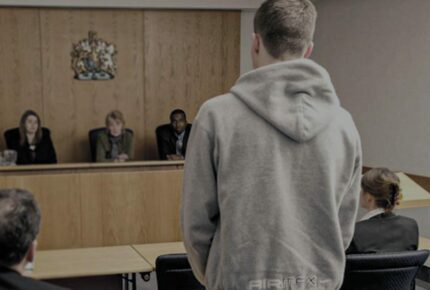

Accusations of computer hacking can leave you feeling anxious, confused, and uncertain about your future. The legal process is often complex, and the potential outcomes can be intimidating. If you or someone you know is facing allegations of hacking, you may be wondering what the offence involves, what penalties you could face, and whether a suspended sentence is a realistic possibility. This article breaks down the essentials, clarifies the legal process, and offers practical advice to help you make informed decisions about your next steps.
What is computer hacking?
Computer hacking refers to unauthorised access to computer systems, networks, or data. This offence is primarily prosecuted under the Computer Misuse Act 1990, which was introduced to address the growing threat of cybercrime. Hacking can take many forms, from accessing someone else’s email account without permission to breaching the security of large organisations or government systems.
The act of hacking typically involves bypassing security measures, exploiting vulnerabilities, or using malicious software to gain access to information or systems that the hacker is not authorised to use. In some cases, hackers may steal data, disrupt services, or cause financial loss. Others may simply explore systems out of curiosity, but even this can result in criminal charges if done without consent.
The law distinguishes between different types of hacking offences. For example, unauthorised access to computer material (Section 1), unauthorised access with intent to commit further offences (Section 2), and unauthorised acts with intent to impair the operation of a computer (Section 3) are all separate offences under the Computer Misuse Act. The seriousness of the offence, and the potential penalties, depend on the intent, the scale of the intrusion, and the consequences of the hacking.
What are the typical sentences for computer hacking offences?
Sentences for computer hacking offences in the UK can vary widely, depending on the nature and impact of the crime. The courts consider hacking to be a serious matter, especially when it results in financial loss, disruption of services, or breaches of sensitive data. For the most serious offences, custodial sentences of up to ten years are possible, along with unlimited fines.
That said, sentencing is not automatic or uniform. Judges take into account a range of factors, including the scale of the offence, the intent behind the hacking, the harm caused, and the defendant’s personal circumstances. For example, a first-time offender who accessed a system out of curiosity and caused no harm may receive a more lenient sentence than someone who orchestrated a large-scale attack for financial gain.
Not every conviction leads to immediate imprisonment. Depending on the circumstances, the court may impose a community order, a financial penalty, or a suspended sentence. The decision will depend on the specifics of the case and the background of the accused.
What is a suspended sentence and how does it operate?
A suspended sentence is a custodial sentence that is not enforced straight away. Instead of being sent to prison immediately, the individual is allowed to remain in the community for a set period, usually between six months and two years, provided they comply with certain conditions. These conditions might include performing unpaid work, attending rehabilitation or educational programmes, or refraining from using computers for certain purposes.
If the person adheres to all the requirements and does not commit any further offences during the suspension period, they will not have to serve the prison sentence. However, if they breach the conditions or are convicted of another crime during this time, the original sentence can be activated, and they may be sent to prison.
Is a suspended sentence possible for computer hacking offences?
Yes, it is possible for a court to impose a suspended sentence in cases of computer hacking, depending on the circumstances. The judge will consider the seriousness of the offence, the defendant’s personal history, and their prospects for rehabilitation. If the court is satisfied that immediate imprisonment is not necessary and that the individual is unlikely to reoffend, a suspended sentence may be granted.
For example, if the defendant’s involvement was minor, they have no previous convictions, and they have shown genuine remorse, the court may be more inclined to suspend the sentence. On the other hand, if the hacking was sophisticated, caused significant harm, or was motivated by financial gain, the likelihood of a suspended sentence decreases.
Remember that a suspended sentence is not available for every offence and is always at the discretion of the court. The judge will weigh all the circumstances before deciding whether suspension is appropriate.
What factors influence the court’s decision on a suspended sentence for computer hacking offences?
When deciding whether to suspend a custodial sentence in cases involving computer hacking, the court will consider a range of factors:
- The scale and complexity of the offence: Was the hacking a one-off incident or part of a larger, organised campaign? Did it involve multiple systems, sophisticated tools, or deliberate attempts to conceal the activity?
- Financial loss and number of victims: How much damage was caused, and how many individuals or organisations were affected? Was the impact limited or widespread?
- Level of planning and sophistication: Was the offence opportunistic, or did it involve careful planning and execution over a period of time?
- Role and responsibility: Was the individual the main instigator, a key organiser, or a minor participant? Did they abuse a position of trust, such as working in IT or having privileged access?
- Abuse of trust: Did the hacker exploit their professional status, personal relationships, or access to confidential information?
- Impact on victims: Did the hacking cause significant hardship, distress, or long-term financial or reputational damage?
- Personal circumstances: Factors such as age, health, family responsibilities, and previous criminal record are all relevant.
- Remorse and restitution: Has the individual admitted their wrongdoing, apologised, or made efforts to compensate those affected?
- Risk of reoffending: Is there evidence that the individual is likely to commit similar offences in the future?
- Ability to comply with conditions: Is the individual likely to adhere to the requirements of a suspended sentence?
Mitigating factors, such as genuine remorse, cooperation with the authorities, or steps taken to address underlying issues (such as addiction or mental health problems), can work in the individual’s favour. On the other hand, aggravating factors, such as repeated offending, attempts to conceal misconduct, or targeting vulnerable people, can make a suspended sentence less likely.
How serious does computer hacking have to be for a prison sentence?
Prison sentences are generally reserved for the most serious cases of computer hacking that result in significant harm. Several factors increase the likelihood of a custodial sentence:
- Substantial financial losses: The greater the monetary damage inflicted on victims, the more likely a prison sentence becomes. Large-scale attacks that result in losses for businesses, public services, or individuals are treated with particular severity.
- Targeting vulnerable individuals or critical infrastructure: Exploiting those with limited technical knowledge, or attacking essential services such as healthcare, utilities, or government systems, is viewed extremely seriously by the courts.
- Sophisticated or organised schemes: Cases involving complex planning, multiple participants, or the use of advanced hacking tools often indicate a higher degree of culpability and premeditation.
- Previous convictions: A history of dishonesty, cybercrime, or similar offences will demonstrate a pattern of behaviour and significantly increase the chances of a custodial sentence.
In addition to these factors, the court will also consider the overall impact of the hacking, including not just the financial loss but also the psychological distress caused to victims and the damage to public confidence in digital security.
If the offence was genuinely out of character, the financial impact was limited, or there are compelling personal circumstances (such as serious illness, a genuine effort at restitution, or a demonstrable lack of understanding of the full implications of the actions), the court may consider alternatives to prison.
How can I improve my chances of receiving a suspended sentence for computer hacking offences?
If you are hoping to avoid immediate imprisonment, there are several proactive steps you can take to improve your chances of receiving a suspended sentence:
- Seek specialist legal advice early: An experienced solicitor can help you understand the charges, build a robust defence, and present your case in the best possible light.
- Take responsibility and show remorse: Courts are more likely to be lenient if you acknowledge your wrongdoing and express genuine regret.
- Make efforts to compensate victims: If possible, return funds or assist in recovering lost data. Demonstrating a willingness to make amends can be influential.
- Gather character references: Letters from employers, community leaders, or family members can help show that the offence was out of character and that you have strong support networks.
Where to find further support
Facing criminal charges for computer hacking can be overwhelming, especially given the technical nature of the allegations and the potential consequences. If you or someone you care about is in this situation, remember that early intervention can make a significant difference to the outcome of your case. Contact the expert team at Stuart Miller Solicitors today to get advice on next steps and start building your defence.
OUR COMMITMENTS TO YOU:
-
Responsive
A legal expert will consult you within 24 hours of making an enquiry.
-
Empathetic
We will always treat you with trust, understanding and respect.
-
Specialised
Your case will be handled by an expert who specialises in your type of offence.
-
Proactive
We will take early action to end proceedings as soon as it is practically and legally possible to do so.
-
Engaged
You will be kept updated on your case at all times. We will provide a named contact available to answer your questions.
-
Caring
We understand this is a difficult and stressful time for you and your family. Our team will support you every step of the way.
-
Tenacious
We will never give up on your case. We fight tirelessly to get you the best possible outcome.

